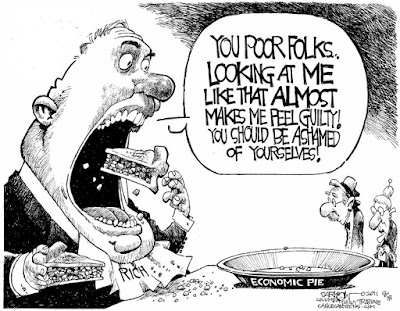To stir the people, to set them thinking for themselves, and to hold before them a future world based upon mutual interests, is the cause of humanity and the aim of the Socialist Party. The education of the people in the principles of industrial democracy and along the lines of socialist development is the task of the people and that task can be performed only by themselves.
Too many times in the past has been state capitalism misleadingly been designated as socialism. Whenever the State nationalised an industry, whenever the State imposed its control over industry, the so-called “socialists” naively said this was an abandonment of capitalism, and the growing acceptance of socialism, a step in the transformation of capitalism into socialism. What was being ended was not capitalism, but laissez faire capitalism; what came was not socialism nor an first stage of socialism, but the centralised command economy of state capitalism.
The Socialist Party rejected the policy of state ownership, it rejected the argument that state capitalism was an initial phase of socialism, and insisted upon the democratic and common ownership of the world’s production and distribution. State capitalism is not socialism and never can become socialism. State intervention is in the interest of the capitalist class. the separation of ownership and management does not mean that capitalism is “not capitalism” any more, in the sense of any basic change in class relations. It simply separates the functions of exploitation and management, formerly combined in the person of the capitalist himself, now become a government ministry official. Management is made the function of civil servants. Management no longer need to own, but it manages as appointees and employees. They control; they exploit. The state bureaucracy privileged caste, become beneficiaries, a privileged caste, in varying degrees from the subjection and exploitation of the workers. Unlike the investing financial capitalist the bureaucrat (or corporate CEO) is a worker, but a working capitalist, an exploiter of the labour of others.The capitalists are a class, a useless, dangerous, parasitic minority that can be dispensed with.
Democracy can be broadly defined as the provision of the opportunity and the right for all members of a community or organisation, no matter what their level, to participate in the decision-making process which affects their daily lives without fear of recrimination. This is in contrast to the way most institutions work today whereby it is only people at the top who have the right to make or influence decisions.
Why should the voter cast his or her ballot for the Socialist Party? Why should someone become a member of the Socialist Party?
First, that the Socialist Party is the only party that squarely stands for social and economic democracy. The Tories and the Labour parties are one in their allegiance to the City of London and capitalist supremacy. A vote for either of these parties is a vote for plutocratic misrule and wage slavery.
The Socialist Party is the party of the working class. Its emancipation, which will follow the abolition of the wage system, will mean the freedom of humanity, based upon cooperative industry; and it will also mean the end of the dog-eat-dog struggle for existence in human society and the beginning of the first real civilisation the world has ever known.
The Socialist Party, therefore, is the coming party, regardless of its present small size.
The Socialist Party proposes to transfer the sources, means, and machinery of production and distribution from the private hands to the collective people, so that wealth may be produced in abundance, not to enrich a small class, but for the comfort and enjoyment of all. People who prefer freedom to slavery, peace to war, love to hate, plenty to poverty, happiness to misery, should support the Socialist Party.
Socialism is industrial democracy, by, for and of the workers, first, last and all the time. As those of us in the Socialist Party understand we’ve still got time to turn things around concerning climate change. But the time to act, to educate, to build stronger movements, to scale up our best practices, to gain political power, is now.






